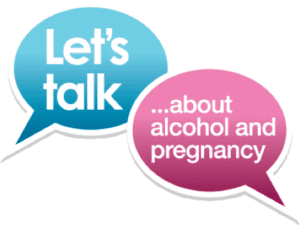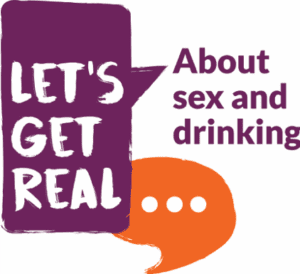Blog

It’s Time to Talk About Alcohol and Pregnancy
March 5, 2018 | In: General Information
The FASD Prevention Conversation: Let’s talk about alcohol and pregnancy

Fetal Alcohol Spectrum Disorder (FASD) can be a hard thing to talk about. There is still much misunderstanding about what FASD means, how it happens and also, who is responsible for preventing it.
FASD refers to a complex range of brain injuries that can result from prenatal exposure to alcohol, including developmental, physical, learning and behavioural disabilities. FASD is preventable, but the issue is complicated.
Peer pressure, curiosity, family troubles, mental health concerns and addiction all can contribute to a woman’s decision to drink. An unplanned pregnancy and/or lack of information about the impact of alcohol on the unborn baby can mean unknowingly putting the fetus at risk by drinking. Good information and a healthy support system can make a big difference.
Our research tells us that, at least 9 out of every 1000 babies born in Alberta have FASD. About 36,000 Albertans deal with the impacts of prenatal alcohol exposure across their lifespan. FASD costs the Province of Alberta an estimated $927.5 million annually, including costs associated with health, education and correctional services, as well as losses in productivity.
The personal costs are even higher. Shame, isolation, depression, as well as higher rates of poverty and abuse plague individuals and families who struggle to come to grips with this disorder and cope with it’s consequences.
Though we have come to understand the impact: the prevalence and the costs of FASD, much of our population doesn’t yet understand the issue. It makes sense to carry this message to youth and women of child bearing age and their support systems.
The Prevention Conversation is a new approach to FASD prevention that focuses on the power of relationship and conversation to inspire change. With funding and support from the Province, Prevention Facilitators in all 12 FASD Networks are working to engage everyday Albertans – from medical professionals and counsellors to personal trainers and teachers – in conversations about alcohol and pregnancy.
We know that talking about alcohol and pregnancy is not easy and can be uncomfortable, so the focus is on how to normalize the conversation and invite open, honest dialogue. The effectiveness of reducing anxiety and providing practical strategies while talking about alcohol use and pregnancy is backed up by research on ‘brief intervention’. It can be an effective tool for changing behaviour.
Our key messaging:
It is safest not to drink alcohol of any kind, in any amount, at any time during a pregnancy.
Girls and women who find it hard not to drink during pregnancy need our support, not our anger. We all need to hear these messages, regardless of age, gender and social or economic status.We have a shared responsibility. FASD is a societal problem and not just a woman’s issue.
Those who are sexually active and who drink alcohol are urged to use effective contraception.
Accurate and non-judgemental conversations about alcohol and pregnancy have the potential to reduce the numbers of children born who have been affected by prenatal alcohol exposure.

Our communities have largely been receiving us and our messaging with open arms however we have been asked repeatedly for support in bringing this message to young people. We recognized that the tools we were using to engage the adult community were unlikely to be embraced by adolescents so we have prepared ourselves with new materials and strategies for those who have access to young people and are likely to be seen as having a positive influence. It is our intention to provide resources and training to those ‘mentors’ in a format that is adaptable, making the materials (in whole or in part) appropriate for a variety of age groups, at a variety of developmental stages, in a variety of settings. The tools can be used all at once or over an entire school year, however it works best for the program or the individual instructor.
We recognize that some of the materials are not appropriate for all audiences, and that some parents will not be comfortable with having some topics discussed with their children. In this case, it is easy to remove the said materials while providing the remainder of the content. We are also available to speak to parents in groups or individually if they have concerns or questions about the information, and also if they wish to reinforce the teachings provided through additional conversations of their own.
We are providing you with an addendum that outlines how our materials currently link to curricular outcomes in for Health and Life Skills in Grades 6 through 9 and the C.A.L.M. Program for High School students.
We would be happy to meet with anyone who is interested in this project and wants more information about The Prevention Conversation. You can contact either
Debbie Collins at 403-828-7011 or [email protected]
Megan Tucker at 780-545-9116 or [email protected]

ABOUT LCFASD
The Lakeland Centre for FASD provides cost-free programs and services in the Cold Lake, Bonnyville, St. Paul and Lac la Biche areas, as well as on First Nations and Métis Settlements through Alberta.